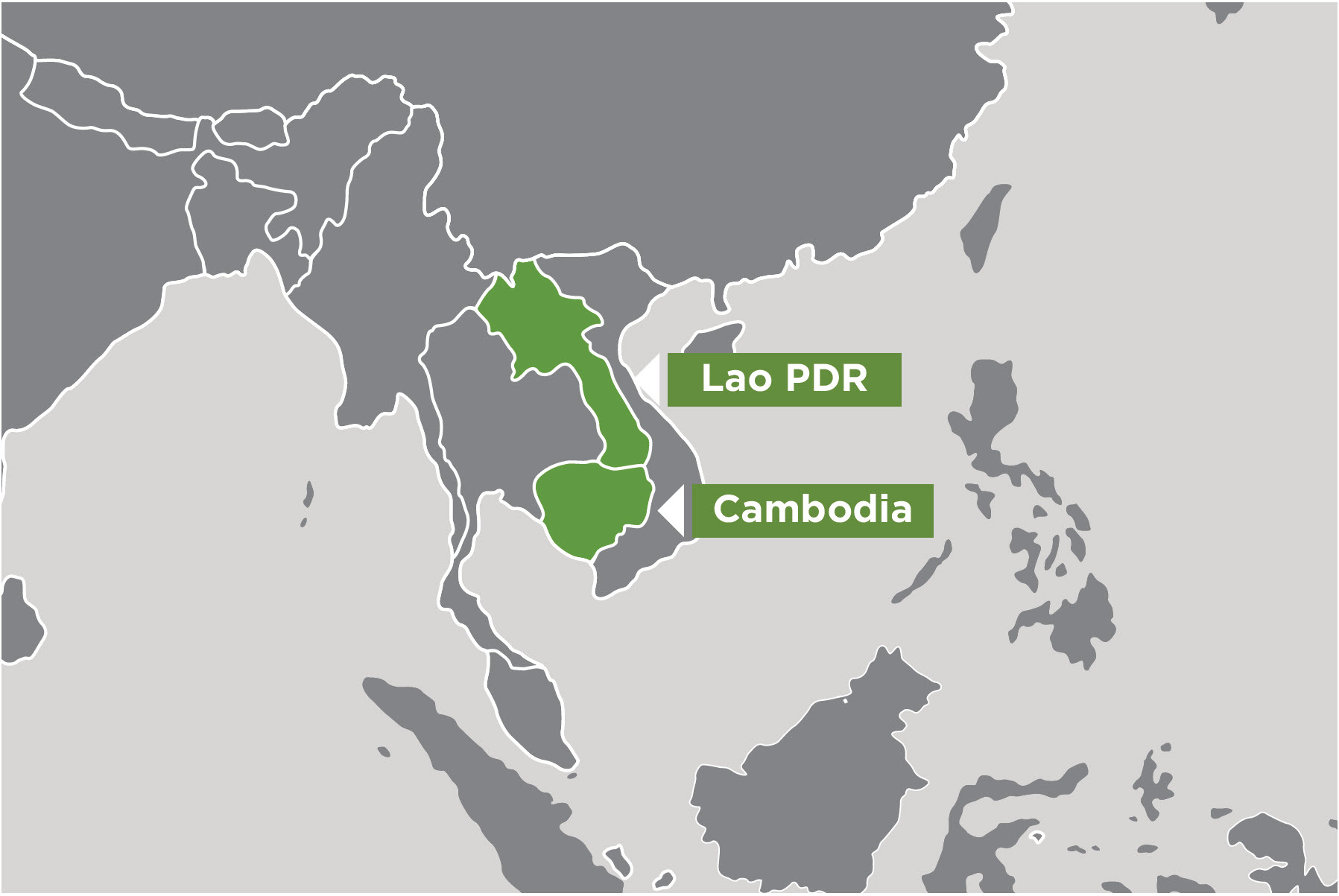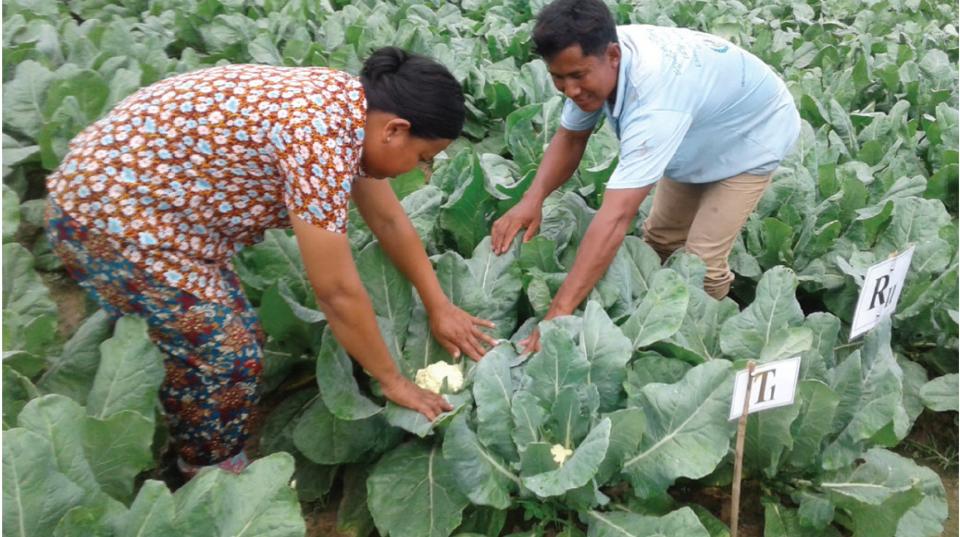Overview
This project developed innovative production and supply chain systems to enable the Cambodian and Laos vegetable industries to meet year-round consumer demand for vegetables.
Vegetable production in Cambodia is expanding, with current production estimates at 400,609 tonnes/year. This increase in production is still insufficient to meet current consumer demand with domestic production heavily supplemented by imports. In Lao PDR, vegetable production is 1.23 million tonnes/year with imports accounting for 10-20%. Whilst vegetable consumption is higher in Lao PDR, there are large differences between provinces.
The vegetable industries in Cambodia and Lao PDR face a number of shared challenges – low yields, poor competitiveness with
Project outcomes
- Developed and assessed 'High-Low plastic roof shelter’ - project-designed, low cost, protected cropping structure across 16 demonstration and trial sites, that are enabling farmers to produce economic crop yields over the whole year, including the wet season.
- Conducted train-the-trainer workshops on protected cropping, mitigating food safety risks and post-harvest losses and in-country teams delivered technical outreach activities for smallholders, other agencies and organisations.
- Conducted analysis of vegetable wholesale markets to improve understanding of domestic market dynamics and provide insights into opportunities for smallholders.
- Daily wholesale prices for a range of crops collected over a three-year period to appreciate the seasonality and stability of price fluctuations as well as price differentials with imported product and better inform potential market engagement strategies for smallholders.
- Food safety risk assessments conducted on smallholder vegetable farms to identify the likelihood and potential impacts of pesticide residue and/or pathogen contamination and to improve food safety awareness amongst farmers.
- Vegetable supply chains mapped from production through to the wholesale market to identify critical stages in the supply chain that lead to quality loss to develop interventions that can reduce post-harvest losses.
- Straightforward post-harvest interventions evaluated for efficacy and feasibility.
- A series of regional networking and information exchange events linking government, NGO and industry stakeholders.
- Trialling a universal online sharepoint concept for vegetable industry resources.





